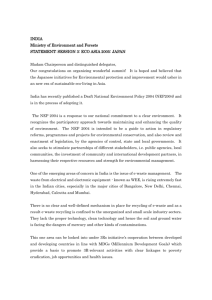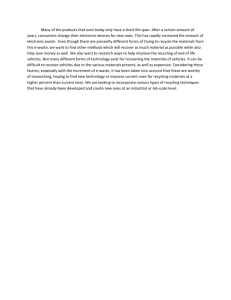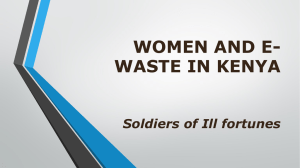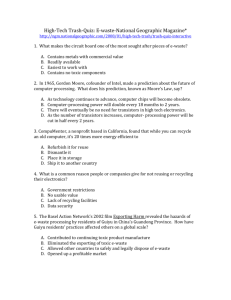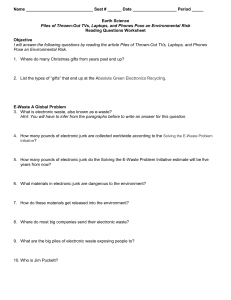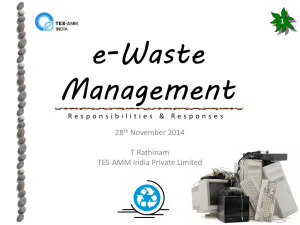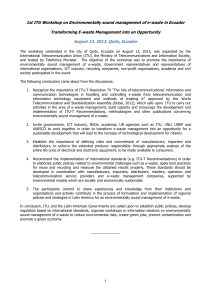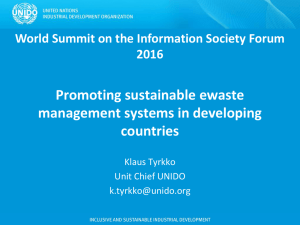Africa – a continent of contrasts
advertisement
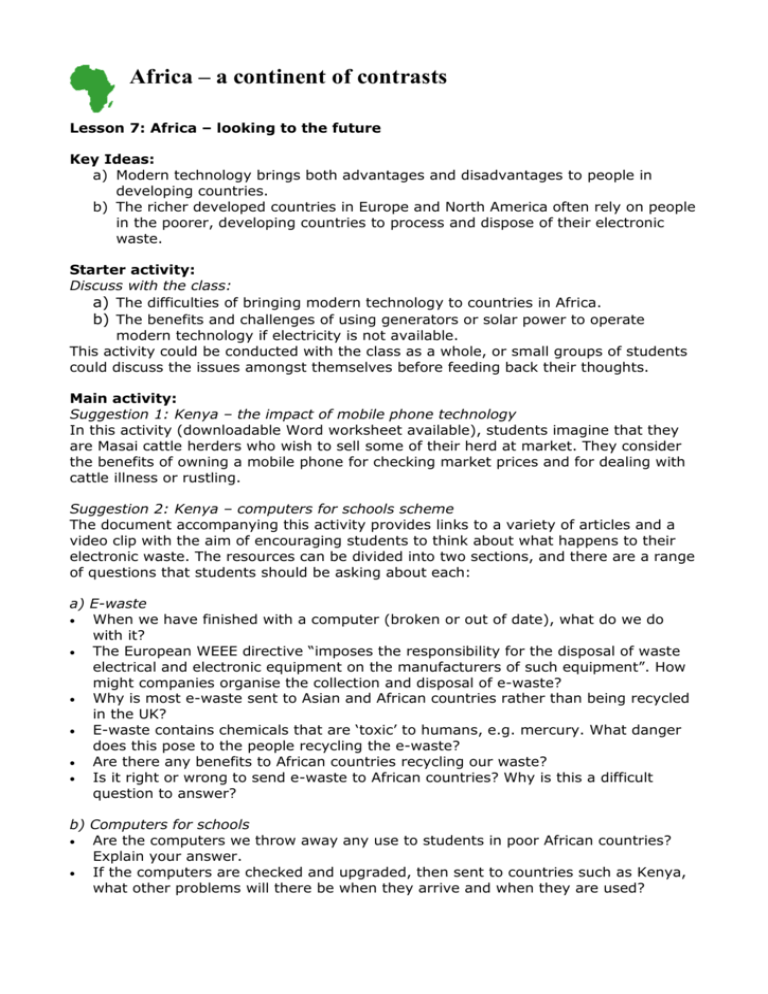
Africa – a continent of contrasts Lesson 7: Africa – looking to the future Key Ideas: a) Modern technology brings both advantages and disadvantages to people in developing countries. b) The richer developed countries in Europe and North America often rely on people in the poorer, developing countries to process and dispose of their electronic waste. Starter activity: Discuss with the class: a) The difficulties of bringing modern technology to countries in Africa. b) The benefits and challenges of using generators or solar power to operate modern technology if electricity is not available. This activity could be conducted with the class as a whole, or small groups of students could discuss the issues amongst themselves before feeding back their thoughts. Main activity: Suggestion 1: Kenya – the impact of mobile phone technology In this activity (downloadable Word worksheet available), students imagine that they are Masai cattle herders who wish to sell some of their herd at market. They consider the benefits of owning a mobile phone for checking market prices and for dealing with cattle illness or rustling. Suggestion 2: Kenya – computers for schools scheme The document accompanying this activity provides links to a variety of articles and a video clip with the aim of encouraging students to think about what happens to their electronic waste. The resources can be divided into two sections, and there are a range of questions that students should be asking about each: a) E-waste When we have finished with a computer (broken or out of date), what do we do with it? The European WEEE directive “imposes the responsibility for the disposal of waste electrical and electronic equipment on the manufacturers of such equipment”. How might companies organise the collection and disposal of e-waste? Why is most e-waste sent to Asian and African countries rather than being recycled in the UK? E-waste contains chemicals that are ‘toxic’ to humans, e.g. mercury. What danger does this pose to the people recycling the e-waste? Are there any benefits to African countries recycling our waste? Is it right or wrong to send e-waste to African countries? Why is this a difficult question to answer? b) Computers for schools Are the computers we throw away any use to students in poor African countries? Explain your answer. If the computers are checked and upgraded, then sent to countries such as Kenya, what other problems will there be when they arrive and when they are used? Would it be better to send aid in the form of textbooks, pens and exercise books rather than computers? Explain your answer. What difference might it make to the lives of Kenyan students if they learn how to use ICT equipment and other modern technology such as mobile phones? Should people in poorer countries have to depend on second-hand equipment? In pairs, students should select a set of questions to answer each and use the resource list to do so. Once they have completed the questions, they share their answers with their partner. A whole-class discussion can then follow. Plenary: The plenary that you choose might depend on the task that you have completed with your students during the main part of this lesson. Suggestion 1: Consider how mobile phones might bring benefits to other groups of people in African countries. Suggestion 2: Debate whether we should rely on poorer developing countries to deal with electronic waste from the richer western countries.

